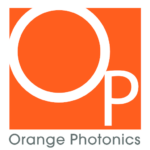Key Testing Touchpoints for LightLab 3 PSY Users
Strain Selection
Characterize the chemical makeup of different strains, and select those that deliver the desired output and meet customer demand.
Substrate Recipe Optimization
Fine-tune substrate recipes to achieve fast pinning, reduce aborts, and maximize yields and potency, while ensuring consistent and high-quality results.
Cultivation Control
Flush (harvest) strains or individual mushroom groupings during the highly specific, narrow peak potency window to prevent time-based degradation. Improve yields over time by guiding adjustments to temperature, humidity, substrate, CO2 levels, or treatments applied. Understand the implications of foreign fungi, mold, or pests.
Extraction Optimization
Stretch the value of target compounds, increase revenues, and create interesting new products. Test throughout the extraction process to optimize temperatures, soak time, and solvent choice, and understand biomass vs. output potency and yields.
Degradation Management
Degradation of target compounds affects product quality and is an undesired effect of poor processing, drying, or storage conditions. Utilize LightLab to measure and limit degradation.
Dosage Verification
Quantify potency and confirm dosing by using Total Active Psilocin (TAP), reported in milligrams per serving and milligrams per package. Ensure a consistent, accurately dosed, and labeled end product.
Quality Assurance
Degradation of target compounds affects product quality and is an undesired effect of poor processing, drying, or storage conditions. Utilize LightLab to measure and limit degradation.
Sourcing Validation
Make informed materials pricing and procurement decisions by confirming the potency of biomass or extracts before purchase. Just a 0.1% variance in potency can have massive revenue implications when scaled and over time.
Test Psychedelic Mushrooms with LightLab 3






